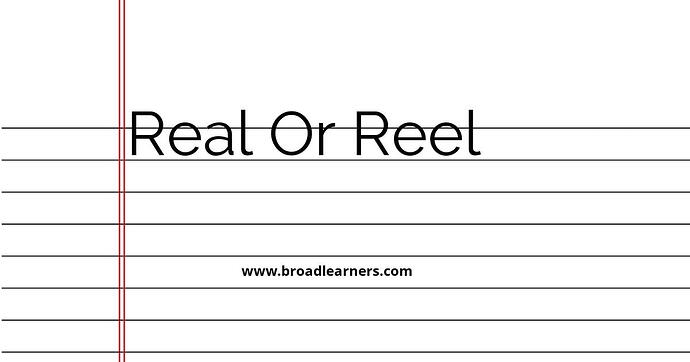'Real' and 'reel' are commonly confused words in English grammar. Understanding the difference between 'real' and 'reel' is important to use them correctly in written and spoken English.
'Real' is an adjective that means genuine, actual, or true. It is used to describe something that exists in reality or is not imaginary.
'Reel' on the other hand, can be a noun or a verb. As a noun, 'reel' refers to a cylindrical object around which something is wound, such as a film reel or a fishing reel. As a verb, 'reel' means to stagger or lose one's balance, often due to dizziness or drunkenness.
Let's take a closer look at the meanings and usage of 'real' and 'reel'.
| 'Real' | 'Reel' |
|---|---|
| The word 'real' is an adjective that means genuine or actual. | The word 'reel' can be a noun or a verb. |
|
|
To remember the difference between 'real' and 'reel', it can be helpful to associate 'real' with something genuine or actual, while 'reel' can be associated with a film reel or the act of losing balance.
Here are some examples of correct usage:
- Is that a real diamond or a fake one? (describing something genuine)
- I'm going to buy a new fishing reel for my dad. (referring to a cylindrical object)
- She felt dizzy and started to reel after spinning around. (losing balance due to dizziness)
- This movie is so realistic, it feels like watching a real-life event. (describing something genuine)
Remembering the correct usage of 'real' and 'reel' will improve your grammar and communication skills.
